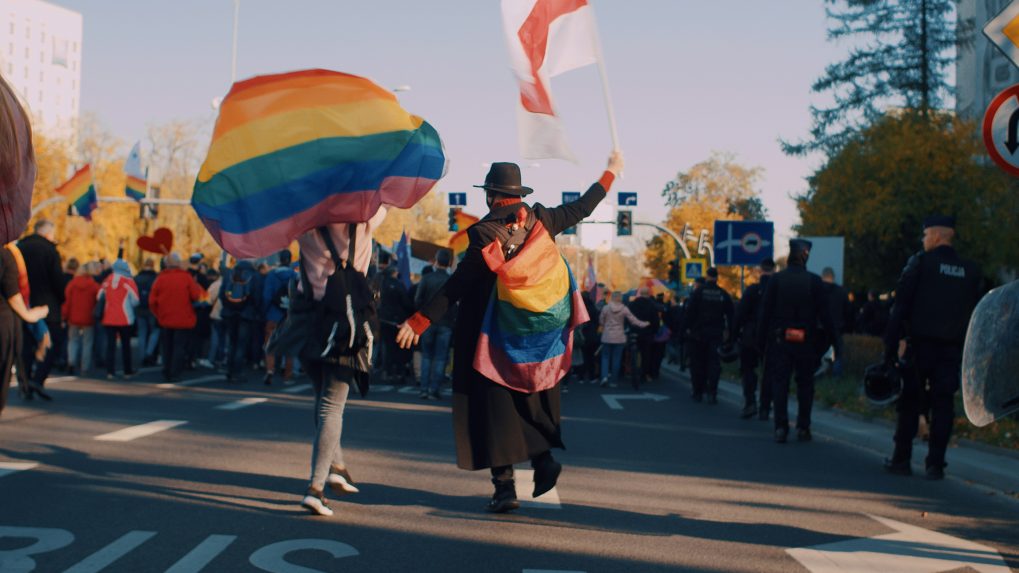Advertising
From Pink Slips to Silent Sidelining: Inside adland’s layoff and anxiety crisis

Many LGBTQIA+ women and non-binary people feel unsafe in their personal and professional lives, reveals a new survey of almost 500 women and non-binary people in India.
The research, by Kantar, in partnership with DIVA Charitable Trust and The Curve Foundation, found that public transport is particularly worrying for many, where 27% feel unsafe or only somewhat safe. Concern about online spaces is also common with 25% saying they feel unsafe or only somewhat safe on social media, and 58% have witnessed abuse. 17% said they feel unsafe or only somewhat safe at work or their place of education, and 18% don't feel safe in their own neighbourhoods.
In the workplace, 33% report witnessing or experiencing verbal or physical abuse because of their or someone else’s sexual orientation, up from 19% in 2024. The most common experiences are verbal abuse and unwanted comments (48%) and being misgendered (42%). Being excluded from activities and events is also common at work, cited by 41% of those who have had negative experiences. In addition, many feel LGBTQIA+ women are excluded from conversations around workplace inclusion, with 72% saying LGBTQIA+ networks and development opportunities are very male dominated.
Parenting under pressure
The study also explores the specific challenges and experiences of LGBTQIA+ parents. A majority (76%) think most people in their country believe that LGBTQIA+ couples are equally capable parents as cisgender, heterosexual couples. Despite this, almost a third (28%) say it’s hard to be an LGBTQIA+ parent where they live.
Commenting on the findings, Caroline Frankum, Chair, Profiles division and Executive Sponsor, Pride ERG, Kantar, said: “Promisingly, the research points to familial acceptance of LGBTQIA+ people growing over time. About a quarter of respondents told us they would not have felt comfortable discussing gender identity with their parents or guardians growing up. But now, over two thirds think their children would be supported by their extended families if they came out as gay, lesbian or bisexual.”
The commercial argument for inclusion
Worldwide, 371 million people identify as LGBTQIA+, representing $3.9 trillion in buying power annually. And globally four out five (78%) LGBTQIA+ people say it’s important that the brands they buy from actively promote diversity and inclusion. Yet in the past year, one third of respondents have felt unrepresented by adverts for products they use, highlighting a lack of visibility and inclusion of the community in brands’ communications.
Local perspectives
The research outlines the different experiences and challenges faced by LGBTQIA+ women and non-binary people in the four countries surveyed:
India – Seeking support to navigate a challenging environment: 87% of respondents said their ability to access different routes to becoming parents, such as adoption, IVF or surrogacy, differs significantly from that of their cisgender, heterosexual counterparts. Furthermore, only 7% of LGBTQIA+ parents in the study identified as single; compared with 25% on average, suggesting romantic partnership is a crucial survival mechanism for LGBTQIA+ individuals.
South Africa – Financial strain and heightened safety concerns: A significant number of LGBTQIA+ individuals feel unsafe even in their own neighbourhoods, with more than a quarter (27%) expressing this concern. Economic inequality is also particularly acute for the community, with almost half (47%) having difficulty affording the things they need or want.
UK - Section 28’s legacy looms: When asked whether they recall sexual orientation and gender identity being formally discussed in school, more than half of UK respondents said that these topics were not addressed. In addition, 60% of LGBTQIA+ parents had no LGBTQIA+ role models growing up: the highest of the four markets surveyed.
USA – Political upheaval takes its toll: The US stands out among the four markets for having the highest rate of legally married LGBTQIA+ parents (63%). That said, a third don’t feel they have the same legal rights as other families, reflecting the recent political upheavals facing the community.
Mridul Shekhar, India HR Head - Kantar Analytics & Vice chair, Inclusion & Diversity Steercom - APAC, Kantar, commented: “Many LGBTQIA+ women in India are being let down by their communities, workplaces and businesses, and living their lives in fear. The increase in reported verbal and physical abuse in workplaces underscores the need for comprehensive policies and training to ensure a safe and respectful environment for LGBTQIA+ employees. These findings underscore the urgent need for organizations to create safer and more inclusive environments for everyone.”
Nancy Kelley, Executive Director, DIVA Charitable Trust, said: “LGBTQIA+ rights are under accelerating attack around the world. Visibility has become not just about representation, but about survival. Ensuring that our experiences are seen and heard is critical to pushing back against erasure and defending our rights. As always, understanding the challenges we face in workplaces, media, and public life, helps us advocate for meaningful change.”
From purpose-driven work and narrative-rich brand films to AI-enabled ideas and creator-led collaborations, the awards reflect the full spectrum of modern creativity.
Read MoreLooking ahead to the close of 2025 and into 2026, Sorrell sees technology platforms as the clear winners. He described them as “nation states in their own right”, with market capitalisations that exceed the GDPs of many countries.